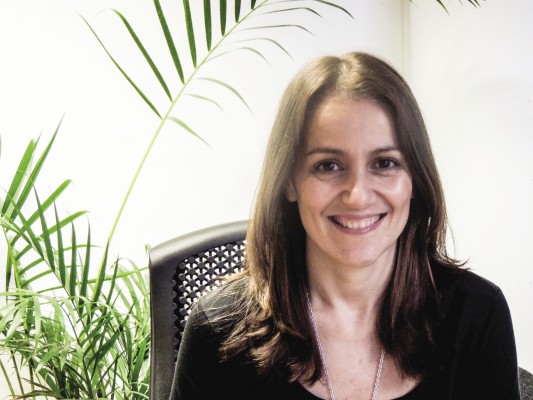
Where there is a food emergency, agencies like the UN World Food Programme rightly devote the majority of their time, resources and attention to those suffering directly from a food shortage. But paying no mind at all to the needs of staff working for a relief agency like the WFP, says Ilaria Dettori, is a recipe for burnout and organizational ineffectiveness over the long term.
“Working in this field is an enormous personal challenge for everyone,” said Dettori, policy and programs staffing coordinator at the WFP’s headquarters in Rome, Italy. “The main challenge for this work is reconciling it with personal life and living in difficult environments, having to move your family around the world, having to leave your family in many situations.”
Dettori, nearly finished with her MA specializing in organizational development at EMU‘s Center for Justice and Peacebuilding, has spent considerable time in stressful work environments herself, including four years in Darfur, Sudan. She began that WFP assignment in 2005, the same year that she first attended the Summer Peacebuilding Institute at EMU. Ever since, Dettori has been chipping away at her graduate degree one summer at a time at the summer institute, while continuing to work for the WFP, the food relief agency in the UN system.
While her initial goal at CJP was to study development and peacebuilding (she also worked in Burundi for CARE International at one point), her focus began to shift to the internal workings of development and peacebuilding organizations.
“The core of the job is what we do in the field in the country offices, but I have come to realize how much internal organizational dynamics have an impact on how effective our work in the field is,” said Dettori. “If you haven’t got the right staff in the organization, you may have funds and great strategies, but the impact will be minimized.”
A leadership class taught by David Brubaker, associate professor of organizational studies, was key to that realization, said Dettori.
She shifted her work from the field in Darfur to the WFP’s Rome headquarters in 2009. There, Dettori’s main focus is career development for the WFP’s program staff, who comprise about a third of the organization’s 14,000 employees. Acting as an intermediary between WFP program officers and human resources, Dettori provides career advice, coaching and guidance to program staff on stressful field assignments. Without the right personnel functioning healthily, she said, the best strategies and plenty of funding won’t get an organization very far.
Her attraction to CJP was both practical – by taking summer courses through SPI, she could continue working full-time – and based on the program’s reputation for being at the leading edge of its field. The experience so far has met every expectation: “Nearly everything I’ve learned has been of real practical utility for me in my daily life as a person and as a professional,” she said, adding that “CJP has been a lot more than just acquiring technical knowledge.”
Having shifted her focus from the more visible peacebuilding and development work carried out in the field by agencies like the WFP to the equally important behind-the-scenes work of organizational effectiveness, Dettori said CJP has valuable things to teach other large institutions.
The subject of “conflict-sensitive” development and humanitarian work, which looks at minimizing the negative impact and maximizing the positive influence of this work on conflicts on the ground, has become an increasing priority for the WFP and elsewhere in the UN system, she said. By providing more people with practical and theoretical training in this area, she said CJP has the potential to play an influential role in improving the effectiveness of UN programs around the world.